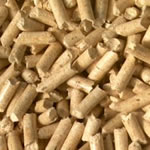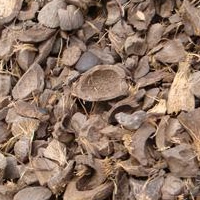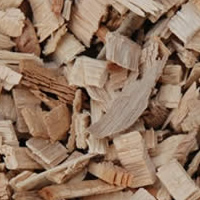
Commodities description
Solid Fuels

Coal and pet-coke are today one of the main sources of energy on the planet: about 40%
of the world's energy is produced through the use of solid fuels.
Within the definition of solid fuels, we can distinguish different types of products . The main two are:
Coal: extracted from underground mines and used mainly for producing electricity;
Petcoke: residue from the processing of crude oil mostly used in the cement
manufacturing process;
Salt

Sodium chloride, most commonly known as salt, is a mineral available in nature in rather abundant quantity. Most of it is dissolved in the sea, but it can also be found in underground deposits over the mainland. The salt extracted from mines is called rock salt, while what obtained by evaporation of sea water is called sea salt. During the winter period, both types are used on roads and highways to prevent the formation of ice.
Silica Sand

From the erosion of rocks, including sandstone, sand is a finely fragmented sedimentary product.
It's made of resistant minerals, the predominant component being, generally, quartz. These debris are called "grains",
whose dimensions are between 2 and 0,063 mm.
The sand has always been used by men for a variety of applications, from construction industry,
to processing of metals to produce abrasive material, to agriculture. A particular type of sand,
silica, in pure state is used as base material, then mixed with other additives, to produce glass.
Clinker & Cement

Cement is an hydraulic binder that comes in shape of finely ground powder. It is produced from
limestone, marl and clay, mixed in appropriate quantities and baked at high temperatures, which leads to the formation of
a semi-finished product called "clinker".
This an artificial mineral is then mixed with other components,
constituting the base material for preparation of cement.
Project Cargo

This definition refers to parts of plants or projects that are too large or too heavy to be transported in single shipments. The heaviest lots of this type are also called "heavy lifts". Some examples of these products are: wind turbines, turbines, tanks, pipelines, rail cars, etc.
Break Bulk

Similar to project cargo , these products are raw or semi-finished materials that are not
containerized but somehow wrapped or grouped by stand.
Some examples of these products are: logs, ingots on pallets, big bags, coils, etc. ;
Semi-finished iron and steel products

This definition covers semi-finished products, such as: slabs, rods, blooms, coils, billets, beams,
obtained through casting or mill processes and intended for future processing.
These products are used for production of sheets, electro-welded nets or for direct use in the construction industry
and in carpentry for production of metal structures.
Ferroalloys

The steel-alloy is a metal alloy, or more generally an inorganic chemical compound of iron and
at least one other chemical element.
This product is mainly used in steel mills and foundries for the production of special steels.
Biomass



We define "biomass" as any source of energetic materials coming from forest or agricultural products.
Biomass derived fuels emit into the atmosphere, during their combustion, an amount of carbon dioxide
more or less corresponding to what previously absorbed by the plants during their growth process.
Therefore the use of biomass for energy production purposes does not cause the release of excessive
carbon dioxide, which is the main responsible for greenhouse effect and global warming.
Woodpellet
Woodpellet , more commonly known as pellet, is the most popular biomass.
It's produced by mechanical processes, the wood is subject to very high pressures
and pressed through a die which gives the characteristic cylinder shape. Heat generated by the pressure
activates the binding effect of lignin, a substance naturally part of the wood, which determines its compactness
and lucidity. The pellet is a natural and environmentally friendly product.
Wood Chips
Among the various forms in which the wood can be prepared for combustion, there is a particularly convenient
and practical shape: that of "shredded " or "CHIPPED" wood. The logs are shredded mechanically
to small fragments called "particles"
of uniform size; the small splinters are named "CHIPS".
Wood chips can be used for combustion, production of woodpellet and as body of wooden panels.
PKS
Acronym for Palm Kernel Shell, it's the kernel shell of the palm fruit, a vegetable solid fuel with high
calorific value, equivalent to best quality of woodpellet.
PKS is used as bio-fuel for the production of energy.


